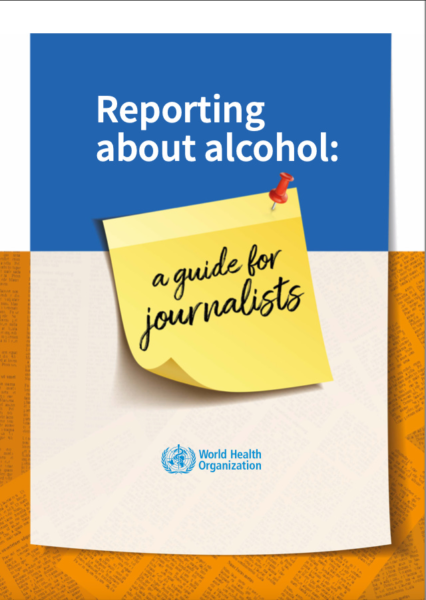Thersites the Historian
Published 17 Jan 2023In this video, I review Graham Hancock’s new series on Netflix, where he presents his case for a globe-spanning prehistoric civilization to a general audience.
(more…)
April 23, 2023
My Review of Graham Hancock’s Ancient Apocalypse
April 22, 2023
“I’d stock every preschool classroom with The Anarchist’s Cookbook if I could”
I’m also a libertarian, but I might not go quite as far as Freddie deBoer in the quote in the headline:
Julian Sanchez makes good sense here on recent bills in Florida designed to regulate and censor LGBTQ content in schools:
Yes, indeed. Kids will learn about LGBTQ issues sooner or later. It’s pointless to try and keep them from finding out about the existence of homosexuality, of gay love, of gay marriage, of trans people and gender nonconformity. They’re gonna find out. They have smartphones, usually much younger than they should. They’re curious and the world is always a click away. It’s foolish to try and prevent them from learning about this stuff. And, in fact, the more that you try to restrict what they learn, the more likely they are to explore this world in a way that openly defies your efforts. LGBTQ people, politics, art, and culture exist. You’re entitled to object to LGBTQ rights, in a free society, but you’re not entitled to (or able to) create a bubble in which others are kept hidden from knowledge of the existence of LGBTQ people. People love that I’m forever tweaking liberals about their attachment to various forms of unreality, to thinking that they can wish away facts of life that they’re uncomfortable with. But it’s the same deal here.
Look, I will acknowledge that some of the reporting on the “Don’t Say Gay” bill has distorted and exaggerated what the bill calls for, and I also think there’s a lot of motivated dismissal about the nature of some of the content that’s being debated. For example, some people have gone to the ramparts to defend access to the book This Book is Gay, which explicitly advertises itself as a guide to sex, despite the fact that the author herself says it’s not for children. (Pictures of the book that are routinely circulated are typically dismissed as conservative fabrications, but you just have to look at the book to know that isn’t true.) Probably that particular example is a matter of some groups being lazy when putting together reading lists, but of course there are always going to be debates and edge cases.
Would I ban that book? Of course not. Personally, I’m completely libertarian about this stuff; I’d stock every preschool classroom with The Anarchist’s Cookbook if I could. But there’s a difference between holding that position and believing it’s credible to pretend that there’s literally nothing to debate there. It’s pointless to pretend that books in a public school classroom are going to remain untouched by these disagreements. The views of parents will inevitably be expressed through the democratic apparatus that presides over those schools. Of course people are going to debate this stuff. Vociferously.
Still, the objections are ultimately misguided for the reasons Sanchez says. Plenty of kids in extremely repressive conservative environments dreamed of a future as an openly gay person in a liberal city, before the internet. I’ve always had qualms about the “born this way” framing — if being gay was a choice, would society have any legitimate right to refuse people from making it? — but the simple reality is that gay people and trans people etc have always transcended restrictive social and religious environments in their interior life, even if it was too dangerous for them to express it. If a kid is gay, they’re gonna figure that out. You don’t have to speed along the process, but trying to artificially impede their progress won’t work. That’s an “is” statement, not an “ought” statement.
Epistemology, but not using the term “epistemology” because reasons
At Founding Questions, Severian responds to a question about the teaching profession in our ever-more-self-beclowning world:

Proposed coat of arms for Founding Questions by “urbando”.
The Latin motto translates to “We are so irrevocably fucked”.
I know a guy who teaches at a SPLAC where they have some “common core” curriculum — everyone in the incoming class, regardless of major, is required to take a few set courses, and all of them revolve around that question. How do we know what we know? So it’s not just a public school / grade school thing. And epistemology IS fascinating … almost as fascinating as the fact that the word “epistemology” never shows up on my buddy’s syllabi.
I think the problem is especially acute for “teachers”, because the Dogmas of the Church of Woke are so ludicrous that it takes real effort to not see the obvious absurdities. It takes real hermeneutical talent to reconcile the most obvious empirical facts with the Dogmas of the Faith, and very few kids have it. So they either completely check out, or just repeat the Dogmas by rote.
The other problem has to do with teacher training. I know a little bit about this (or, at least, a little bit about how it stood 15 years ago), because a) I was “dating” an Education Theory person, and b) I went through Flyover State’s online
indoctrinationeducation Certificate Program.The former is just awful, even by ivory tower standards, so I’ll spare you the gory details. Just know that however bad you think “social science” is, it’s way way worse. The “certification program” was something I got my Department to sign off on — I was the guy who “knew computers” (which is just hilarious if you know me in real life; I’m all but tech-illiterate), so I got assigned all the online classes, which the Department fought against with all its might, and only grudgingly agreed to offer when the Big Cheese threatened to pull some $$$ if they didn’t. So even though I wouldn’t have been eligible for all the benefits and privileges thereunto appertaining, me being a lowly adjunct, none of the real eggheads could bring themselves to do it, so I was the guy.
The Education Department, being marginally smarter than the History Department, saw which way the wind was blowing, so they started offering big money incentives for professors to sign up for this “online teaching certification program” they’d dreamed up. No, really: It was something like $5000 for a two course, which really meant “two hours a day, four days a week,” because academia works like that (it’s a 24/7 job, remember — 24 hours a week, 7 months a year). By my math, $5000 by 16 hours is something like $300 an hour, so hell yeah I signed right up …
It was torture. Sheer torture. I knew it would be, but goddamn, man. Take the worst corporate struggle session you’ve ever been forced to attend, put it on steroids. Make the “facilitator” — not professor, by God, not in Education! — the kind of sadistic bastard that got kicked out of Viet Cong prison guard school for going overboard. Add to that the particularities of the Education Department, where all of academia’s worst pathologies are magnified. You know how egghead prose hews to the rule “Why use 5 words when 50 will do?” In the Ed Department, it’s “why use 50 when 500 will do.” The first two hours of the first two struggle sessions were devoted to Bloom’s Taxonomy of Success Words, and click that link if you dare.
I know y’all won’t believe this, but I’ll tell you anyway: I spent more than an hour rewriting the “objectives” section of my class syllabus to conform to that nonsense. Instead of just “Students will learn about the origins, events, and outcomes of the US Civil War,” I had to say shit like “Engaging with the primary sources” and “evaluating historical arguments,” and yes, the “taxonomy” buzzwords had to be both underlined and italicized, for reasons I no longer remember, but which were of course retarded.
Given that this is fairly typical Ed Major coursework, is it any surprise that they have no idea what learning is?
April 21, 2023
The bigger the government, the worse it does everything
Sarah Hoyt wants you to see the illusions that the government and the legacy media have invested so much time and effort to make you believe:
The last century hasn’t actually brought about great “scientific” improvements in governance or the condition of man. It has brought about better production and better commerce, which was enough to stop the periodic famines which plagued our ancestors.
Famines and scarcity subsist only where pernicious central governments stomp on human liberty and individual freedom. And they need to stomp pretty hard. We haven’t managed it. But there are rumors out of China and Venezuela. And of course Russia managed it, just as they did the near-starvation of “never quite enough.”
However, all those advances in material culture didn’t bring about similar advances in centralizing government and “sculpting” the new man.Humans remain human. And the more centralized, over a larger area, that government is, the more inefficient it is. Even — fortunately — at creating misery. Government that requires certain results gets certain results reported. Even if they have nothing to do with reality.
Sure, the Soviets didn’t have nearly our nuclear arsenal. But the people at the top there MIGHT very well have thought they did, at least after a while. Because the underlings had to report it was done. or else.
All of you repeating the nonsense about boiled frogs, and how their sloooooowwww plan has worked perfectly are just buying into the same juvenile, retarded lie. NONE of their plans ever worked perfectly. Their history is littered with five year plans that worked only in someone’s imagination.So why would their plans work better in a far away place they never fully understood? With a people who are notoriously averse to obeying?
Of course they didn’t. They don’t. You can convince yourself they have, particularly if you listen to the left and ignore all the times they got stomped on, got smacked, got their cookies taken away.
Look, their plans at changing THE PEOPLE and the people’s beliefs worked so well that despite their total control of federal democracy, two presidents that broke the script, almost 40 years apart, were enough to wreck all their illusions and control. Reagan and Trump, amid a train of uniparty parrots were enough to destroy the left’s certainties and “control”.
This is because their control was always — and still is — largely not real. It’s an illusion created by the mass-industrial communications complex. Here as in Russia, they don’t control ANYTHING but the narrative. The narrative is how they keep telling you to give it all up, because, look, their plan worked perfectly, and now your children are theirs and mwahahahaha.
In true fact, they’ve broken their teeth on America. They’ve managed — with propaganda — to take over the sectors that are less in contact with reality: academia, the arts, the rarefied heights of corporations. (Those aren’t really business. They’re to business what MBAs are to running a lemonade stand. Having worked for corporations, the large ones have more in common with massive, inefficient states than with commerce of any kind.)
The rest of us? We have not surrendered our guns or our minds. Yes, the propaganda machine keeps pushing those who have, but that’s the only thing the centralized state was ever good at: propaganda.
But if their plans were working perfectly, “Let’s go Brandon” would not have gone viral. That one proved not only that the majority of people aren’t with the left, but also that the majority of people see the media manipulation. More importantly, do you remember what the “Let’s go Brandon” was all about? Right. There were spontaneous flash mobs forming everywhere screaming “F*ck Joe Biden.” I’d known about them for months. They were forming everywhere, including in New York City. That one was just one that was caught on camera. (Because of course, the media never showed those.)
The Neo-Prohibitionists have taken over the World Health Organization
Christopher Snowden illustrates some of the deliberate lies promulgated by the World Health Organization’s anti-alcohol activists:
The incompetent and corrupt World Health Organisation has produced a “guide for journalists” to help hacks report on issues related to alcohol accurately. Not entirely unpredictably, it is a catalogue of anti-drinking tropes, half-truths and brazen lies. The very first words are “No amount of alcohol is safe to drink” and it doesn’t get any better thereafter.
The health benefits of moderate alcohol consumption really stick in the craw of the neo-temperance lobby and so that is where the WHO starts:
Isn’t drinking some alcohol good for your health?
No, there is no evidence for the common belief that drinking alcohol in moderate amounts can help people live longer by decreasing their risk of heart disease, diabetes, stroke or other conditions.
No evidence?! Even a casual follower of the science knows that there is at least some evidence. Those who are more familiar with the literature know that there is a huge amount of evidence built up over decades, tested and re-examined from every angle precisely because so many people in ‘public health’ don’t want to believe it.
It is inaccurate to say that “experts are divided” on whether there is no amount of healthy alcohol drinking. The scientific consensus is that any level of alcohol consumption, regardless of the amount, increases risks to health.
This is just a lie. That is not the consensus, and the only reason there isn’t unanimous agreement that moderate drinking is beneficial to health is that anti-alcohol academics such as Tim Stockwell have made it their life’s work to cast doubt on the evidence.
While several past studies did suggest that moderate consumption could, on average, promote health benefits …
Note that this immediately contradicts the claim that there is no evidence.
… newer research (1) shows that those studies used limited methodologies and that many of them were funded by the alcohol industry (2).
The first reference is a short commentary by some WHO staffers which doesn’t discuss methodologies at all. The second reference is a study which found that only 5.4 per cent of research papers in this area were funded by the alcohol industry and concluded that “the association between moderate alcohol consumption and different health outcomes does not seem to be related to funding source.”
The WHO must hold journalists in low esteem if it thinks they won’t check up the citations like this.
The dicussion [sic] about possible so-called protective effects of alcohol diverts attention from the bigger picture of alcohol harm; for example, even though it is well established that alcohol can cause cancer, this fact is still not widely known to the public in most countries (3).
The “bigger picture” is overall mortality. When all the risks are taken into account, including the small risks from a few rare cancers, do moderate drinkers live longer than teetotallers? Yes. Yes, they do.
April 20, 2023
It’s not your imagination, you really did just hear that song again … and again … and again
Ted Gioia on some sort of scam-like activity going down on Spotify and other large web platforms:
Adam Faze kept hearing the same song on Spotify over and over again.
Such things aren’t unusual. Hit songs get played repeatedly—although this one seemed more annoying than most.
But in this case, something even more bizarre was happening.
When Adam looked to see the name of the song, it was always different. The titles were a wild assortment—almost as if a random word generator had been used to pick them:
- “Trumpet Bublefig”
- “The Proud Dewdrop Amulet”
- “Thorncutter”
- “Viper Beelzebub”
- “Whomping Clover”
- Etc. etc.
But the music was always the same.
Even stranger, the artist was also different in each instance. And if you clicked on the writer credits, those were all different too.
How could the same track be attributed to dozens of different musicians? How could the same song be written by dozens of different composers?
Adam started compiling a playlist, and adding each new iteration of this song when he found it. When he got to 49 versions, he shared the playlist on social media. “I’ve officially stumbled upon the weirdest thing I’ve ever seen”, he announced.
A Twitter user, alerted by this, quickly discovered another 10 iterations of the same song. This banal tune was everywhere. The use of multiple aliases made it difficult to gauge the full extent of the deception, but Spotify was pushing this track so aggressively that it was impossible to hide the charade they were playing.
When asked how it was possible to find so many examples, Adam replied: I’m completely serious when I say it was starting to be every other song after a while.”
The song itself is just 53 seconds. And you’re glad when it’s over, because this tune is a loser — almost a Frank-Ocean-at-Coachella level of bad. Even call centers have better taste in their on-hold music.
QotD: Food fascism
I think the liberal elite – which you don’t see bellying up to a creepy-crawly buffet – just likes the idea of not only nagging us but seeing how much they can make us humiliate ourselves by bending to their will. I can see a bunch of kale grazers in Brooklyn sitting around giggling about how they convinced those stupid rubes in gun/Jesusland to start chewing cicadas.
But the diet dictatorship craze is a real thing. You’ve seen the war on beef by the likes of Alexandria Ocasio-Genius, who runs her oversized novelty mouth about how we have to stop cooking cows because doing so displeases the great and terrible climate goddess Gaia. See, cows may contribute to the world being slightly warmer in a century, so stop doing something you enjoy. Consider not eating beef as a sacrifice made on behalf of the weird weather cult.
Here’s a locust. Now, don’t you feel better about your slightly reduced carbon footprint?
What do you think the chances are that the di Caprios and the Gores and the rest of the climate hucksters won’t be dining on filet mignon in their private jets flying from their mansions to Davos to save the planet from your carbon crimes, while you pedal your bike in the rain back to your unheated 500 square foot apartment to gnaw on a dinner of arugula and raw moths?
Remember, food fascism is for your own good, since you are evidently unable to make decisions about what you put in your mouth for yourself. You see, if you are allowed to make your own choices about your body you might make the wrong ones – with “wrong” being defined as choices Michael Bloomberg or the other members of Team Helper would not make.
Kurt Schlicter, “Tell The Nags To Go Pound Sand”, Townhall.com, 2019-11-19.
April 19, 2023
QotD: Transsexuals before Trans* politicization
In a not terribly long life, I have known well three transsexuals (as we used to say), and another three not so well. Not because I especially sought out their company, but just because I’ve spent a lot of my time around theatre and music and areas that attract those who feel “different”. Two of those three friends I didn’t know were transsexual until they were “outed”, one very publicly — although with hindsight certain curious aspects of both their physiognomy and behavior suddenly made a lot more sense.
But that’s the point: Even those far closer to them than I was weren’t aware — because back then the object of having a “sex change” (also as we used to say) was to change from being a man to being a woman. There were still only two teams and you were simply crossing over to bat for the other side. The trans-life had little in common with “gay pride” — because the object wasn’t to come out of the closet, but to blend into it so smoothly no one would know you hadn’t always been there. Before their outing, the two ladies in question were more lady-ier than thou: both used to show up once a month with a box of Tampax “discreetly” poking out from the top of their handbags — even though, as we all understood in retrospect, they had no need of it. But they had chosen to live as women, and so they wished to be as other women. And they were mortified when they were exposed.
This was the conventional view as late as the Nineties, when Armistead Maupin’s celebration of the gay life, Tales Of The City, became must-see TV for sophisticated liberals on Britain’s Channel 4 and America’s PBS. The big plot point was the matriarch Mrs Madrigal (Olympia Dukakis) “revealing” her “secret” — that she was not born a woman.
To be sure, as the chromosomocentrists argue, one cannot, biologically, “change sex”. But I’ll skip that argument, because, as usual, conservatives are fighting over ground the left has already scorched and moved on from for new conquests. I have no great objection to a grown man who “identifies” as a woman and wishes to live as one. Guys have been doing that, to one degree or another, throughout history, and all that’s happened is that cosmetic surgery has caught up with their desires. If half the women in California can walk around with breast implants, I don’t see why the chaps can’t.
But the chromosomocentrists are missing the point. The left’s saying, “Yeah, XY chromosomes, big deal. You’re right, but so what? No one’s saying she’s a woman. We’re saying she’s a transwoman — a new, separate and way more glamorous category that’s taking its seat at the American table and demanding public affirmation. This isn’t your father’s sex change. Changing from man to woman is so last century.”
Mark Steyn, “Birth of the New”, Steyn Online, 2015-06-05.
April 18, 2023
“People who pivot this quickly need to make sure their pants are securely buckled”
We’ve apparently reached the “Republicans Pounce” stage of yet another progressive crusade:
The memo has gone out, and the pivot has arrived.
Ten days ago, you may remember, the suddenly high-profile Nebraska Senator Machaela Cavanaugh went on NPR to play make-believe, expressing consternation over this weird new focus on transgender issues over on the political right: “I don’t know why, as a nation, as policymakers, there is this newfound focus on trans children… And all of the sudden, there is a decision by policymakers that we need to do something about them. It doesn’t make any sense to me.” It’s the why are you guys so obsessed with this DARVO maneuver, spun with bald-faced shamelessness by people who’ve been talking for years about the thing that they suddenly want you to know it’s creepy to talk about.
Now the New York Times explains the same thing in a similar way, writing that transgender issues have suddenly become a big deal in America because scheming right-wingers decided to cook it up as a fake wedge issue:
“The religious right went searching for an issue.” To get donors to write some checks, see. They just made it up, in a cynical act of invention. A bunch of social conservatives were sitting around the office, lamenting how no one gives them money anymore because everybody stopped hating the gays, so they decided, tactically, to pretend that transgender rights was a thing, now, so that they could trick people into giving them money again. Completely out of left field! Trans rights was just sitting there watching some Netflix with a tub of Cherry Garcia when suddenly the doorbell rang.
There’s no pouncing, but you’ve heard this descriptive maneuver before:
Nadine Smith, the executive director of Equality Florida, a group that fights discrimination against L.G.B.T.Q. people, said there was a direct line from the right’s focus on transgender children to other issues it has seized on in the name of “parents’ rights” — such as banning books and curriculums that teach about racism.
“Seized on”. The story also says that the issue of men participating in women’s sports “was accelerated by a few influential Republican governors who seized on the issue early”. There’s a lot of seizing on, and it’s all mysterious. Why did the seizers seize the seized thing? Dunno. They just suddenly, for no apparent reason at all, seized on the issue of women’s sports. Weird. Similarly, that paragraph about “banning books” and forbidding “curriculums that teach about racism” is presented as a given, not as a thing that requires explanation or illustration. It’s tactical murk: half-accusations as smoke and chaff, designed to leave you with the general outlines of a thing that it’s convenient to have you believe. The right-wingers are something something something, and it’s scary.
Canada Council for the (decolonized) Arts
In the latest SHuSH newsletter, Kenneth Whyte follows up on an earlier report on the mission of the Canada Council for the Arts, as outlined by Simon Brault:
… the founders of the Canada Council felt so strongly about the dangers of bureaucratic and political impositions on the arts — officials using federal money to force artistic and cultural activities in one direction or another — that they built checks and balances into its founding legislation.
The checks and balances haven’t checked or balanced. The Canada Council is now fully dedicated to teaching, censoring, and directing artistic endeavour.
The occasion for last year’s piece was a decision by Simon Brault, chief executive of the Canada Council, to halt funding for any “activity involving the participation of Russian or Belarusian artists or arts organizations … This includes partnerships, direct and indirect financing of tours, co-productions, participation in festivals or other events held in Russia.”
The outcome of Brault’s edict was that Canadians last summer weren’t able to enjoy a variety of planned tours by performers who had the misfortune to be born in Moscow, even if they loathed Putin like the rest of us.
It wasn’t the extremity of Brault’s position that set me off — he reserved to himself the right to ban artistic interaction with artists from any country whose government was involved in a conflict he considered unjust — so much as his implication that the arts community was too stupid to have noticed what was happening in Ukraine or to have known how to respond without his guidance.
A few months ago, Brault upped the ante, speaking at the council’s annual general meeting of his “vision for a decolonized future of the arts”.
To actualize this vision, we must also decolonize the Council itself by questioning our own assumptions and convictions.
It is important to acknowledge that decolonization is a complex, evolving, and open concept and journey.
There’s no definitive guide on how to undertake this work.
And it has different implications for different organizations and sectors in our society.
So far, our understanding is that to decolonize the Council, we must agree to reframe our understanding of what constitutes art, which is a big thing for an arts council.
We need also to question the notion of professionalism and artistic disciplines, which are deeply rooted in a very specific time in history, mostly Eurocentric, and often from a very colonialist perspective.
So, we need to challenge the notion of “artistic excellence”, again a concept that upholds hierarchies of good taste and values that confirm and perpetuate the status of the dominant culture.
We also need to move beyond limited notions of artistic expertise because those notions are often the direct product of an education system built to reproduce power relations and safeguard the privilege of a dominant colonial discourse on arts and culture.
There you have it. Brault committed the leading funding agency for the arts in Canada to “challenging” the prevailing understandings of art, artistic professionalism, artistic disciplines, artistic excellence, good taste, artistic values, and artistic expertise.
He’s not quite clear on what he’s going to replace it all with — he’s just sure that the way you think about art is wrong and that Keynes statement that the work of the artist is by nature individual and free, undisciplined, unregimented, uncontrolled, etc., is colonialist claptrap.
Let the regimentation and control begin.
QotD: The worldview of the fanatic
More importantly, though, this is the logical endpoint of “democracy”, and now everyone gets to see it firsthand. In theory, democracy works by channeling competing vices. If men were angels, no government would be necessary, James Madison said, but since they’re not the best we can do is incentivize bad people to do good things in pursuit of their own selfish interest. It’s a nice thought, but it can only work (if, indeed, it can work) in a culture like Madison’s, in which public men are concerned about their dignity, honor, and posthumous reputation.
Obviously none of those hold in Current Year America, since they were all invented by the Pale Penis People, and even if they weren’t, they can’t matter to atheists anyway — one only defends one’s dignity and honor if one believes he’ll be called to account for them, and who’s going to do the accounting? There is no God, and as for the bar of History, what could that possibly matter to a cultural marxist? To them, as to their Puritan forbears, “history” is really soteriology. The past is nothing but a catalog of freely chosen error. For the fanatic, “history” begins anew each dawn, because why study endless iterations of Error when you already have the Truth?
Severian, “The Stakeholder State”, Rotten Chestnuts, 2020-01-22.
April 17, 2023
The lingering pandemic of fear
Liz Hodgkinson on the pattern of fear that the state, media, and public health messaging instilled into so many people during the Wuhan Coronavirus pandemic:

“Covid 19 Masks” by baldeaglebluff is licensed under CC BY-SA 2.0
The Stoics of ancient times believed that in many cases it was possible to control pain by thought alone. To achieve this, they stoically, as it were, accepted painful or unpleasant sensations, viewing them with studied indifference. As such, the pain often went away of its own accord, although to be fair they did use a painkiller known as theriac, which contained opium.
The opposite is also true, in that you can induce pain or disease by thought alone, causing acute and sometimes lasting physical symptoms. Although ancient and tribal societies understood that the power of suggestion can be so strong that it may make people well or ill, this seems to have been forgotten in modern, mechanistic medicine with its insistence on tests, scans, screens and so on.
Because of this, I am now wondering whether as many people would have gone down with Covid (or what passed for it) if, instead of a flu-like illness being ramped up as the worst and most dangerous disease ever to affect humankind, it had been ignored.
As it was, around 80 per cent – and it may have been more – of the world’s population were gripped by such a fear of the bug that they actually thought themselves into illness. Once the PCR test was introduced, people began testing themselves, sometimes hourly, and if the test showed positive they waited for symptoms to appear. More often than not, they obliged.
Then people became terrified to step out of the house without wearing a mask, even though all the evidence showed that these muzzles were more or less ineffective and that even the surgical-quality ones lasted only a couple of hours, at most. People were also nervous of getting close to anybody else, edging away if somebody came within a few feet of them. Only the other day, as I was in a queue waiting to pay for an item, a masked woman in front of me turned round and said crossly: “Do you mind not standing so close to me?” I wondered about making a quick riposte but decided that there was no way I could penetrate this kind of stupidity.
There was also the handwashing ritual where shops, doctors’ surgeries, solicitors’ and estate agents’ offices, for instance, forced hand sanitiser on to you, and sometimes took your temperature as you walked in.
The cleaning nonsense went even further, with hotels, gyms and other places where people gathered announcing “enhanced cleaning”. This may or may not have halted the virus in its tracks but it certainly increased fear. I still see people in the gym furiously scrubbing down bikes, treadmills and other equipment in case a germ from a previous user has had the audacity to linger on the machine.
April 16, 2023
Do Foucault and Derrida deserve the blame for PoMo excesses?
In Spiked, Patrick West says that it’s a misunderstanding of Foucault and Derrida to blame them for the rise of wokeness:

Michel Foucault speaking at the Hospital das Clínicas of the State University of Guanabara in Brazil, 1974.
Public domain image from the Arquivo Nacional Collection via Wikimedia Commons.
It has become common to blame wokeness on its supposed philosophical parent: postmodernism. As the standard narrative goes, postmodernism is the ideology that entrenched itself in Anglophone universities in the 1980s and 1990s. It talked of relativism, of the absence of objective truth, of the spectre of a pervasive, invisible power, and it was generally anti-Western. A whole generation of professors, writers, journalists and a fair few activists have subsequently been raised on this diet of postmodern thinking. And the result is a cultural elite that is wedded to wokeness.
[…]
For these critics of woke, Foucault’s influence, in particular, is seemingly everywhere. According to [Douglas] Murray [in The War on The West], it’s through the “anti-colonial” philosophy popularised by the Foucault-inspired scholar, Edward Said, that Foucault and therefore postmodernism have filtered down into woke philosophy, which holds that Western society is uniquely racist and to blame for all of today’s ills. Equally, right-wing critics of wokeness will claim that the trans movement has sprung from the postmodern contention that sexuality and gender are entirely socially constructed and therefore plastic and malleable.
If Foucault is regarded as the father of wokeness then 19th-century philosopher Friedrich Nietzsche tends to be regarded as the grandfather. After all, Foucault was profoundly influenced by Nietzsche and even proudly declared himself to be “Nietzchean”. Nietzsche, like Foucault, also saw all human behaviour stemming from the desire for power. And he conceived of morality – good and evil, right and wrong – as the mere manifestation of the will to power. As he wrote of the “origin of knowledge”, in The Joyous Science (1883): “Gradually, the human brain became full of such judgements and convictions, and a ferment, a struggle, and lust for power developed in this tangle. Not only utility and delight but every kind of impulse took sides in this fight about ‘truths’.” One can see this Nietzschean sentiment at work in Foucault’s Discipline and Punish (1975): “Power produces knowledge … power and knowledge directly imply one another.”
So, according to this largely right-wing narrative, wokeness is the product of a 20th-century philosophical assault on truth, objectivity and the West. And it was inspired by Nietzsche and led by several “cultural Marxist” thinkers.
There are several problems with this rather neat story. The first error is to use the phrase “cultural Marxism” to talk of postmodernism or wokeness. This term doesn’t really make sense. Marx himself conceived of his work as a historical materialism. It was focussed on class and the means of production, not on culture. Yes, in the 1940s and 1950s, some Frankfurt School thinkers, who sometimes presented themselves as Marxist, did focus on culture rather than class. But as Joanna Williams writes in How Woke Won (2022), their thinking “represented less a continuation of Marxism and more a break with Marx”.
Moreover, postmodern thinkers were broadly opposed to Marxism. Many may have been signed-up Communists in their youth (the French Communist Party dominated left-wing politics at the time), but by the 1960s they had become highly critical of Marxist politics. They rejected the idea that history was progressing “dialectically” towards a communist future, or “telos”. And they were often hostile to the scientific objectivity and “Enlightenment” values so central to Marxism. Foucault wrote that history was not the story of progress; it was but a series of non-linear discontinuities and contingencies. And Jean-François Lyotard (1924-1998), in his highly-influential The Postmodern Condition (1979), announced and celebrated the end of “grand narratives”, and with it the end of the Marxist “grand narrative” of progress. Lyotard’s writings from the 1970s onwards were violently antithetical to Marxism, especially its claims to objective truth.
As for wokeness itself, it has nothing to do with Marxism. With their myopic focus on race and gender, woke activists are utterly blind to the material, class-structure of society. Today, bizarrely, it’s often conservatives who are more attuned to the plight of the working class than woke “radicals”. As Williams writes, “critics who insist that woke is simply Marxism in disguise are wide of the mark”.
April 15, 2023
QotD: When the pick-up artist became “coded right”
When did pickup artistry become criminal? Relying on online sex gurus for advice on persuading women into bed used to be seen as a fallback for introverted, physically unprepossessing “beta males”. And for this reason, in the 2000s, the discipline was promoted by the mainstream media as a way of instilling confidence in sexually-frustrated nerds. MTV’s The Pickup Artist shamelessly broadcast its tactics, with dating coaches encouraging young men to prey upon reluctant women, hoping to “neg” and “kino escalate” them into “number closes“. Contestants advanced through women of increasing difficulty (picking-up a stripper was regarded as “the ultimate challenge”) with the most-skilled “winning” the show.
Today, the global face of pickup artistry is Andrew Tate: sculpted former kickboxing champion, self-described “misogynist”, and, now, alleged human trafficker. Whatever results from the current allegations, his fall is a defining moment in the cultural history of the now inseparable worlds of the political manosphere and pickup artistry, and provides an opportunity to reflect upon their entangled history.
Pickup artistry burst onto the scene in the 2000s, propelled by the success of Neil Strauss’s best-selling book The Game. More a page-turning potboiler cataloguing the mostly empty lives of pickup artists (PUAs) than a how-to guide (though Strauss wrote one of those too), the methods in the book had been developed through years of research shared on internet forums. The “seduction underground”, as the large online community of people doing this research was called, then became the subject of widespread media attention. Through pickup artistry, the aggressive, formulaic predation of women was normalised as esteem boosting, and men such as those described in Strauss’s The Game could be viewed in a positive light: they had transformed from zero to hero and taken what was rightfully theirs.
The emergence of PUAs generated a swift backlash. The feminist blogs of the mid-to-late 2000s internet, of which publications like Jezebel still survive as living fossils, rushed to pillory them. The attacks weren’t without justification, but the world of PUAs during this period, much like the similarly wild-and-woolly bodybuilding forums, had no obvious political dimension beyond some sort of generic libertarianism. It was only after these initial critiques that it began to be coded as Right-wing by those on the Left. Duly labelled, PUAs and other associated manosphere figures drifted in that direction. MTV’s dating coaches were not part of the political landscape, merely feckless goofballs and low-level conmen capable of entertaining the masses. But their successors would be overtly political actors.
Oliver Bateman, “Why pick-up artists joined the Online Right”, UnHerd, 2023-01-08.
April 14, 2023
The trust deficit is getting worse every day
Ted Gioia provides more evidence that the scarcest thing in the world today is getting ever more scarce:
Here are some news stories from recent days. Can you tell me what they have in common?
- Scammers clone a teenage girl’s voice with AI — then use it to call her mother and demand a $1 million ransom.
- Millions of people see a photo of Pope Francis wearing a goofy white Balenciaga puffer jacket, and think it’s real. But after the image goes viral, news media report that it was created by a construction worker in Chicago with deepfake technology.
- Twitter changes requirements for verification checks. What was once a sign that you could trust somebody’s identity gets turned into a status symbol, sold to anybody willing to pay for it. Within hours, the platform is flooded with bogus checked accounts.
- Officials go on TV and tell people they can trust the banking system—but depositors don’t believe them. High profile bank failures from Silicon Valley to Switzerland have them spooked. Over the course of just a few days, depositors move $100 billion from their accounts.
- ChatGPT falsely accuses a professor of sexual harassment — and cites an article that doesn’t exist as its source. Adding to the fiasco, AI claims the abuse happened on a trip to Alaska, but the professor has never traveled to that state with students.
- The Department of Justice launches an investigation into China’s use of TikTok to spy on users. Another popular Chinese app allegedly can bypass users’ security to “monitor activities on other apps, check notifications, read private messages and change settings.”
- The FBI tells travelers to avoid public phone charging stations at airports, hotels and other locations. “Bad actors have figured out ways to use public USB ports to introduce malware and monitoring software onto devices,” they warn.
The missing ingredient in each of these stories is trust.
Everybody is trying to kill it — criminals, technocrats, politicians, you name it. Not long ago, Disney was the only company selling a Fantasyland, but now that’s the ambition of every tech empire.
The trust crisis could hardly be more intense.
But it’s hidden from view because there’s so much information out there. We are living in a culture of abundance, especially in the digital world. So it’s hard to believe than anything in the information economy is scarce.
Whatever you want, you can get — and usually for free. You can have free news, free music, free videos, free everything. But you get what you pay for, as the saying goes. And it was never truer than right now — when all this free stuff is starting to collapse in a fog of fakery and phoniness.
Tell me what source you trust, and I’ll tell you why you’re a fool. As B.B. King once said: “Nobody loves me but my mother — and she could be jivin’ too.”
Years ago, technology made things more trustworthy. You could believe something because it was validated by photos, videos, recordings, databases and other trusted sources of information.
Seeing was believing — but not anymore. Until very recently, if you doubted something, you could look it up in an encyclopedia or other book. But even these get changed retroactively nowadays.
For example, people who consult Wikipedia to understand the economy might be surprised to learn that the platform’s write-up on “recession” kept changing in recent months — as political operatives and spinmeisters fought over the very meaning of the word. It got so bad that the site was forced to block edits on the entry.
There’s an ominous recurring theme here: The very technologies we use to determine what’s trustworthy are the ones most under attack.
Trust used to be a given in most western countries … it was a key part of what made us all WEIRD. Mass immigration from non-WEIRD countries dented it, but conscious perversion of trust relationships by government, media, public health, and education authorities has caused far more — and longer lasting — damage to our culture. Trust used to be given freely, but now must be earned. And that’s difficult for organizations that have proven repeatedly that they can’t be trusted.












